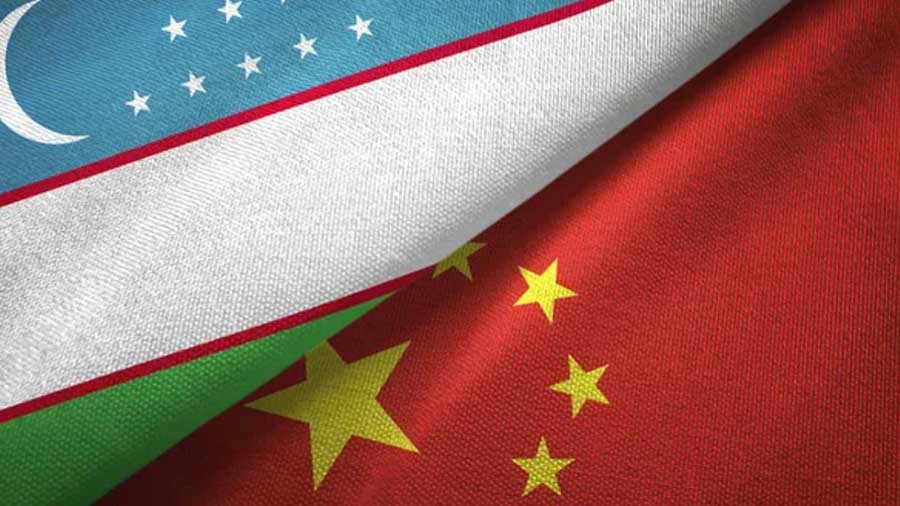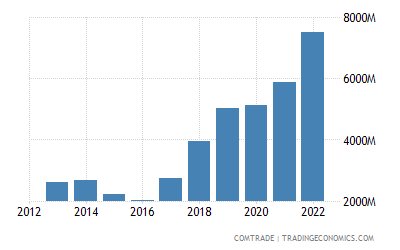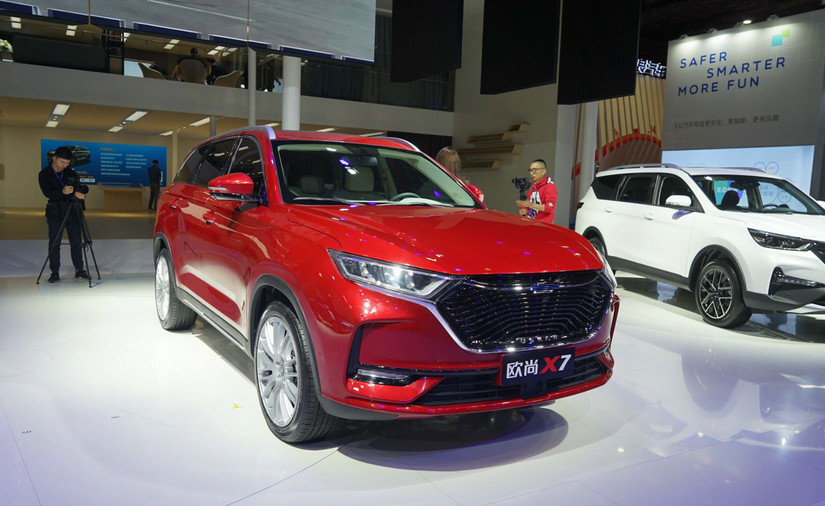China's exports of parts and accessories of motor vehicles to Uzbekistan reached a staggering $112.94mn in 2022, as per the data from the United Nations COMTRADE database on international trade. This figure highlights the rapid growth of China's influence in the global automotive industry and its expanding presence in Uzbekistan, a development that aligns with the goals of the Belt and Road Initiative.

Esfandyar Batmanghelidj, an expert in economic diplomacy and development in West Asia, recently pointed out the remarkable increase in Chinese motor vehicle exports to Uzbekistan. He highlighted that the total number of units exported in the first five months of 2023 already exceeded the total exports in the entire year of 2022. Moreover, he suggested that most of these exports are electric vehicles (EVs), indicating a significant shift in consumer preferences towards more sustainable transportation options.
China has been making significant strides in becoming a dominant player in the global car export market. In 2022, it surpassed Germany to become the world's second-largest car exporter by volume. Notably, Chinese automaker BYD outpaced Tesla in the sale of electrified cars and experienced a remarkable 307% increase in exports. BYD has set its sights on expanding its production globally and aims to surpass Japan by shipping cars to Asia and Europe. Uzbekistan is the first country where BYD has ventured outside of China.

To further solidify its position in the Uzbek market, BYD Auto has entered into a partnership with the state-owned company Uzavtosanoat to manufacture cars locally and produce engines, electric motors, and batteries. Uzavtosanoat, with its extensive network of subsidiaries of over 70 and a large workforce of more than 27,000 employees, stands as the largest automotive holding company in Central Asia. This collaboration aligns with Uzbekistan's broader strategy of developing its manufacturing sector and fostering economic growth.

In addition to BYD, other Chinese car brands are entering the Uzbekistan market, driven by the growing interest in Chinese electric and hybrid cars among Uzbek consumers. Exeed plans to commence local production in early 2023, while Chery has already introduced four car models to the market. A joint venture named "UzFoton" is also being established to produce medium-capacity trucks and minibusses.
Brands such as Jetour, Geely, Haval, Hongqi, XPeng, Changan, and Dongfeng have already set up dealerships and sales offices in Uzbekistan. The affordability, extended driving range, and user-friendly nature of Chinese electric vehicles are the key factors driving their popularity among Uzbek consumers. Another Chinese car brand, Oshan, will also be assembled and sold in Uzbekistan, with prices estimated to range from $13,000 to $30,000.

Domestic Monopoly
The dominance of UzAuto Motors JSC, the operator of GM Uzbekistan, in the domestic automobile market, has been challenged by the influx of Chinese brands. UzAuto has held a monopoly position in the market, accounting for approximately 95% of the market share. However, the company has faced criticism for allegedly engaging in practices such as selling incomplete cars, delayed deliveries, and imposing additional fees. Despite calls for change, UzAuto has not effectively addressed these concerns, resulting in limited competition and higher prices for Uzbek consumers.
The partnership between UzAuto and BYD represents a significant development in Uzbekistan's automobile industry. However, there are concerns that the collaboration could lead to a new form of state monopoly in the electric car sector. UzAuto's potential influence on the government may result in higher taxes on imported electric cars, making it more challenging for other companies to compete in the future.
Uzbekistan Goes Green
The Uzbek government is taking steps to address air pollution and promote the transition to a green economy. In 2022, President Mirziyoyev launched a Plan of Action for Transitioning to a Green Economy and Ensuring Green Growth until 2030. Measures such as abolishing customs duty and excise tax on imported electric vehicles and providing state support for local electric vehicle production aim to reduce harmful emissions and support the development of a sustainable economy. The government also plans to expand the infrastructure for electric vehicles, including the installation of a minimum of 2,500 charging stations by 2025.
Comments (0)